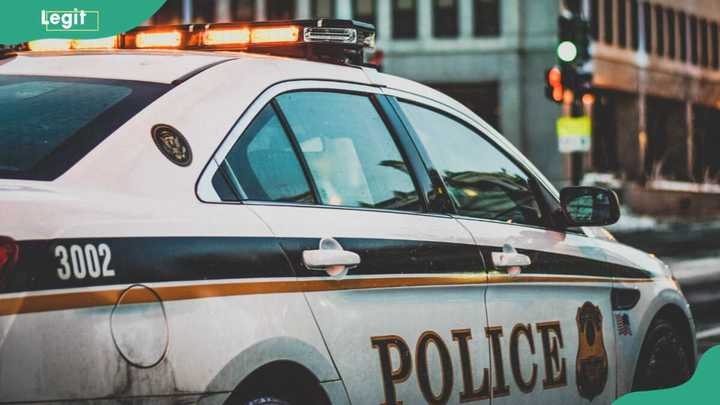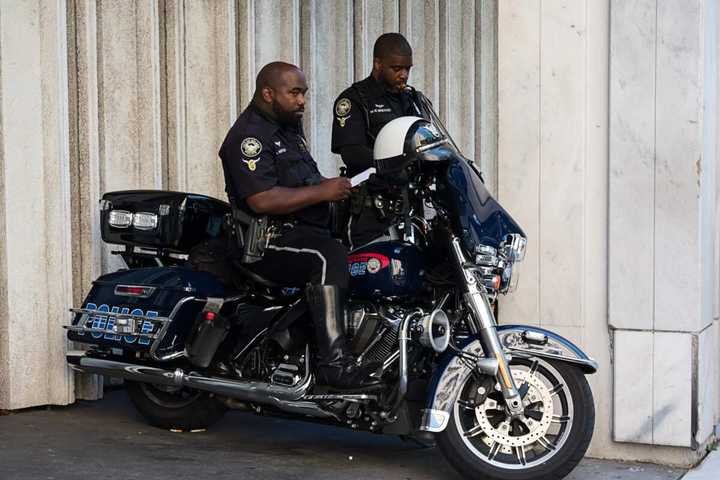Why are police called 12? This is a question frequently asked, especially with the rise of pop culture references and street slang. At WHY.EDU.VN, we delve into the origins, meanings, and usage of this term, providing clarity and context. Discover the hidden meanings and historical connections behind this popular phrase, and enhance your understanding of law enforcement terminology. Explore related terms like “five-oh,” “ACAB,” and police jargon with us.
1. Understanding the Origin of “12” as a Slang Term for Police
The term “12” is a slang term for police officers, primarily used in certain regions of the United States, particularly in Atlanta, Georgia. While its exact origin is debated, several theories attempt to explain its emergence and popularization. Understanding these theories provides insight into the cultural and historical context of the term, as well as its varying connotations.
1.1 The 10-12 Police Code Theory
One prominent theory suggests that “12” is derived from the police radio code “10-12,” which means “stand by” or “wait.” This code was commonly used by law enforcement in the 1960s and 1970s to communicate discreetly over the radio. Over time, the association between the code and police presence led to the adoption of “12” as a shorthand term for cops. The appeal of this theory lies in its simplicity and direct connection to police communication practices.
1.2 The ACAB Connection
Another theory links “12” to the acronym ACAB, which stands for “All Cops Are Bastards.” In this context, “12” is a numerical representation of the letters in ACAB, with “1” corresponding to “A,” “3” to “C,” and “2” to “B.” The number “1312” is then shortened to “12” for ease of use. This theory suggests that “12” is a derogatory term used to express negative sentiments towards law enforcement.
1.3 The Adam-12 Television Show Theory
A third theory attributes the term’s origin to the popular police television show Adam-12, which aired from 1968 to 1975. The show followed two Los Angeles police officers patrolling the streets in their patrol unit, designated “1-Adam-12.” This theory suggests that the show’s widespread popularity led to the adoption of “12” as a general term for police officers, similar to how “5-0” became synonymous with police due to the show Hawaii Five-O.
This photo shows a marked police car parked on a city street, representing the visible presence of law enforcement, a common association with the slang term “12.”
1.4 Regional Variations and Cultural Context
It is essential to consider the regional variations and cultural context in which “12” is used. While the term is most prevalent in Atlanta, Georgia, it may also be encountered in other parts of the Southern United States. The meaning and connotation of the term can vary depending on the specific community and the relationship between law enforcement and the local population. In some areas, “12” may be used neutrally, while in others, it may carry negative or even hostile undertones.
2. The Meaning and Usage of “12” in Contemporary Culture
Today, “12” remains a common slang term for police officers, particularly within specific subcultures and communities. Its usage extends beyond casual conversation and can be found in music, movies, and social media. Understanding the different ways in which “12” is used provides a more nuanced understanding of its cultural significance.
2.1 “12” as a Warning
One of the primary uses of “12” is as a warning signal to alert others of police presence. This usage stems from the term’s historical association with evading law enforcement and avoiding arrest. When someone shouts “12” in a particular area, it serves as a signal for others to be cautious and avoid any illegal activities that might attract police attention. This usage is particularly common in communities with strained relationships with law enforcement.
2.2 “12” in Hip-Hop Culture
Hip-hop music has played a significant role in popularizing the term “12” and embedding it within contemporary culture. Many rappers and hip-hop artists use “12” in their lyrics to refer to police officers, often in a critical or confrontational manner. This usage reflects the complex and often antagonistic relationship between hip-hop culture and law enforcement, particularly in marginalized communities.
2.3 “12” in Movies and Television
The term “12” has also made its way into movies and television shows, particularly those that depict urban life or criminal activity. In these contexts, “12” is often used to create a sense of realism and authenticity, reflecting the language and culture of the characters portrayed. Its usage in media can further contribute to the term’s widespread recognition and acceptance.
2.4 The Connotations of “12”: Respect, Disrespect, or Neutrality?
The connotations associated with the term “12” can vary depending on the context and the speaker’s intentions. In some cases, it may be used neutrally as a simple shorthand for police officers. However, in other instances, it may carry negative or disrespectful undertones, particularly when used by individuals with negative experiences with law enforcement. It is essential to be aware of these varying connotations and to use the term with sensitivity and awareness of its potential impact.
3. Historical Context: The Evolution of Police Slang
The use of slang terms for police officers is not a new phenomenon. Throughout history, various terms have emerged to describe law enforcement, often reflecting societal attitudes and power dynamics. Examining the evolution of police slang provides a broader perspective on the term “12” and its place within the broader history of language and law enforcement.
3.1 Early Police Slang Terms
In the early days of policing, various slang terms were used to refer to law enforcement officers, often reflecting the social and political context of the time. Some of these terms were derogatory, while others were simply descriptive. For example, in the 19th century, police officers were sometimes referred to as “peelers” or “bobbies” in England, after Sir Robert Peel, who established the Metropolitan Police Force.
3.2 The Rise of Radio Codes and Jargon
The advent of radio communication in law enforcement led to the development of specialized codes and jargon. These codes were designed to facilitate clear and concise communication between officers while maintaining a degree of secrecy from the public. Terms like “10-4” (meaning “acknowledged”) and “Code 3” (meaning “emergency”) became common within police culture and eventually seeped into popular culture.
3.3 The Influence of Pop Culture on Police Slang
Pop culture has played a significant role in shaping and popularizing police slang. Television shows, movies, and music often incorporate slang terms to create a sense of realism and authenticity. As a result, many slang terms that originated within law enforcement have become widely recognized and used by the general public.
3.4 The Internet and the Spread of Slang
The internet and social media have accelerated the spread of slang terms, including those used to refer to police officers. Online forums, social media platforms, and streaming services have created new avenues for slang to proliferate and evolve. Terms like “12” can quickly gain traction online, reaching a wider audience and becoming ingrained in internet culture.
4. Related Terms and Phrases
Understanding the term “12” requires familiarity with other related slang terms and phrases used to refer to police officers. These terms often share similar origins, connotations, and usage patterns.
4.1 “Five-O”
“Five-O” is another popular slang term for police officers, popularized by the television show Hawaii Five-O. Similar to “12,” “five-O” is often used as a warning signal to alert others of police presence.
4.2 “The Man”
“The Man” is a general term for authority figures, including police officers. It is often used to express resentment or distrust towards those in positions of power.
4.3 “Po-Po”
“Po-Po” is a slang term for police officers that is believed to have originated in African American communities. It is often used in a derogatory or dismissive manner.
4.4 “Fuzz”
“Fuzz” is a somewhat dated slang term for police officers that was popular in the mid-20th century. It is less commonly used today but may still be encountered in older movies or television shows.
This image features police officers on duty, representing the authority and presence of law enforcement that slang terms like “12” often refer to.
5. Controversies and Criticisms
The use of slang terms for police officers can be controversial, particularly when those terms are perceived as disrespectful or derogatory. Critics argue that such terms can contribute to a climate of distrust and animosity between law enforcement and the communities they serve.
5.1 The Argument Against Disrespectful Language
Some argue that using disrespectful language towards police officers undermines their authority and makes it more difficult for them to do their jobs effectively. They believe that it is important to treat law enforcement with respect, regardless of personal feelings or experiences.
5.2 The Argument for Freedom of Speech
Others argue that the use of slang terms for police officers is a form of free speech and should be protected under the First Amendment. They believe that individuals have the right to express their opinions about law enforcement, even if those opinions are critical or negative.
5.3 The Importance of Context
Ultimately, the appropriateness of using slang terms for police officers depends on the context and the speaker’s intentions. It is important to be aware of the potential impact of one’s words and to use language that is respectful and constructive.
6. The Role of WHY.EDU.VN in Providing Information and Clarity
WHY.EDU.VN is committed to providing accurate, unbiased information on a wide range of topics, including law enforcement terminology and slang. Our goal is to promote understanding and facilitate informed discussions about important social issues.
6.1 Comprehensive and Reliable Information
We strive to provide comprehensive and reliable information on all topics covered on our website. Our team of expert researchers and writers works diligently to ensure that our content is accurate, up-to-date, and objective.
6.2 Addressing Complex and Controversial Topics
We do not shy away from addressing complex and controversial topics. We believe that it is important to provide a platform for open and honest discussions about challenging issues, even when those issues are divisive.
6.3 Promoting Understanding and Dialogue
Our ultimate goal is to promote understanding and facilitate dialogue between people with different perspectives. We believe that by providing accurate information and fostering open communication, we can help to bridge divides and build a more informed and inclusive society.
7. FAQ: Frequently Asked Questions About “12”
To further clarify the meaning and usage of “12,” here are some frequently asked questions:
| Question | Answer |
|---|---|
| Why are police called 12? | “12” is a slang term for police officers, primarily used in certain regions of the United States. |
| Where did the term “12” come from? | The origin of “12” is debated, but theories include the police radio code “10-12,” the acronym ACAB, and the television show Adam-12. |
| Is “12” a disrespectful term? | The connotations of “12” can vary depending on the context and the speaker’s intentions. |
| Is it safe to yell “12” in public? | Yelling “12” in public may be interpreted as a threat or incitement to violence, depending on the context and local laws. |
| What are other slang terms for police? | Other slang terms for police include “five-O,” “the man,” “po-po,” and “fuzz.” |
| How has pop culture influenced the term “12”? | Pop culture, particularly hip-hop music and movies, has played a significant role in popularizing the term “12.” |
| Is it illegal to call a police officer “12”? | Calling a police officer “12” is not illegal in itself, but it could be considered disorderly conduct if done in a provocative manner. |
| Does the term “12” have different meanings in different regions? | Yes, the term “12” can have different meanings and connotations depending on the region and cultural context. |
| How do police officers feel about being called “12”? | Police officers’ opinions on being called “12” vary, with some finding it disrespectful and others viewing it as a harmless slang term. |
| How can I learn more about police slang? | You can learn more about police slang by researching online, consulting with law enforcement professionals, and studying pop culture references. |


8. Conclusion: The Enduring Mystery of “12”
The term “12” remains a fascinating example of how language evolves and reflects societal attitudes towards law enforcement. While its precise origin may never be definitively known, its enduring presence in popular culture and everyday conversation speaks to its cultural significance.
At WHY.EDU.VN, we believe that understanding the nuances of language is essential for fostering informed discussions and promoting a more inclusive society. We encourage our readers to continue exploring the world of language and to engage in respectful dialogue about important social issues.
Have more questions about law enforcement terminology or other topics? Visit WHY.EDU.VN at 101 Curiosity Lane, Answer Town, CA 90210, United States. Contact us on WhatsApp at +1 (213) 555-0101. Our experts are ready to provide you with accurate and insightful answers.
9. Further Reading and Resources
To continue your exploration of law enforcement terminology and related topics, we recommend the following resources:
- The Encyclopedia of Police Science: A comprehensive reference work covering all aspects of policing, including terminology and slang.
- The Dictionary of American Slang: A comprehensive dictionary of American slang, including terms used to refer to police officers.
- Online Forums and Discussion Groups: Online forums and discussion groups dedicated to law enforcement can provide valuable insights into police culture and terminology.
- Academic Journals: Academic journals in the fields of criminology and sociology often publish articles on language and law enforcement.
10. Why Trust WHY.EDU.VN?
At WHY.EDU.VN, we are dedicated to providing reliable, accurate, and comprehensive answers to your questions. Our commitment to excellence is reflected in our rigorous research process, expert contributors, and user-friendly platform.
- Expert Contributors: Our content is created by a team of experienced researchers and writers with expertise in a wide range of fields.
- Rigorous Research Process: We follow a rigorous research process to ensure that our content is accurate, up-to-date, and objective.
- User-Friendly Platform: Our website is designed to be user-friendly and accessible, making it easy for you to find the information you need.
- Commitment to Accuracy: We are committed to providing accurate information and correcting any errors promptly.
- Objective and Unbiased: We strive to present information in an objective and unbiased manner, allowing you to form your own opinions.
At WHY.EDU.VN, we understand the challenges of finding reliable information online. That’s why we’ve created a platform where you can confidently seek answers to your questions, knowing that you’re receiving well-researched, expert-backed content. If you’re tired of sifting through endless search results and unreliable sources, turn to WHY.EDU.VN for clear, concise, and trustworthy answers.
Are you struggling to find accurate answers to your pressing questions? Do you find yourself lost in a sea of conflicting information online? At WHY.EDU.VN, we understand the frustration of seeking reliable knowledge. That’s why we’ve created a dedicated platform to provide you with comprehensive, expert-backed answers to all your queries.
We understand that finding trustworthy answers can be challenging. Visit us at WHY.EDU.VN, located at 101 Curiosity Lane, Answer Town, CA 90210, United States, or contact us via WhatsApp at +1 (213) 555-0101. Let why.edu.vn be your trusted source for reliable and insightful information.
